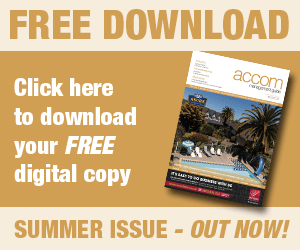Millennium Rotorua
- Details
- Published Date
Millennium Hotel Rotorua has had its share of good fortune.
When all bores within a 1.5 kilometre radius of Whakarewarewa Thermal Reserve were closed some years ago to conserve geothermal activity, the Millennium was one of very few accommodation providers outside that perimeter. Water from its own bore still supplies the hotel's hot water and space heating – a huge saving in the costs of electricity or gas, and of course any CO2 emissions these energy sources would produce.
But it has taken much more than use of a natural resource to achieve Qualmark's Enviro Gold award for sustainability practices, an achievement maintained for more than three years now.
Some initiatives have been so successful that it has enabled the Millennium to share the benefits with other groups in the Rotorua community.
Millennium Hotel Rotorua overlooks the lake and has 227 rooms over five levels. The road to Enviro Gold began when it became one of the founding members of the Rotorua Sustainable Tourism Charter in 2001, an initiative by Tourism Rotorua through its Special Projects Group, to develop a charter for sustainable tourism management in the district.
"It involved initially self auditing our business and analysing what we were doing followed by the charter assessor, Eldad Collins, visiting and making recommendations for improvement for the following year," says the hotel's general manager, Pipiana Whiston.
"Back then, it was quite normal to throw all waste into the same bin which was taken straight to the landfill. Now, we separate paper and cardboard, bottles are all divided into different colours, our cans and other aluminium go into another bin, all plastics are sorted, egg cartons and milk bottles returned to the providers, old batteries are collected, electronic waste is held for collection and a local piggery picks up our food waste."
The hotel examined its use of plastic – why was it needed, was it essential and what alternatives there were.
"In our accommodation rooms, all the drinking glasses had been covered with plastic wrapping for hygiene and there were disposable plastic liners in all the rubbish bins. With 227 rooms, that much plastic going into landfill daily had a significant impact," Ms Whiston said.
Millennium staff came up with ways of eliminating the plastic – instead making sure instead that clean glasses were kept upside down on paper coasters to maintain hygiene and putting washable plastic inners in guests' rubbish bins. Guests were encouraged to remove their own rubbish or put it into piles that housekeeping staff could take to the main recycling bins. "We have an area next to our guest laundry where guests, if they choose, can separate their waste for us to recycle also," said Ms Whiston.
Ensuring staff bought into the sustainability concept was essential.
"We have regular meetings to advise staff on new ideas, and because we've been doing it for quite some time now, I think it's second nature to most. Sometimes, individual staff members create a sustainability quiz with prizes to help make newer staff in particular aware of some of our more recent practices.
"Through the charter, we have regular assessments to ensure we're moving forward each year and gain new information about best practices picked up from other businesses involved in the charter. We also run a full annual audit to make sure we're reducing the energy we're using. We keep track of what we're consuming, whether it's gas, water, electricity and the waste going off site, and that's analysed by an external energy audit company."
Another simple initiative is enabling Millennium Rotorua to share the benefits of substantial cost savings with the local community. "We have what we call a green card that guests can hang on their door if they don't require their room serviced that day. Housemaids remove any rubbish and restock room supplies, but that's all they do. We calculate the cost of the savings in labour and put that back into sponsorship within the local community. We help most requests for local fundraising with vouchers and prizes they can use to raise money."
The green cards save tens of thousands of dollars a year. One of the key sponsorship initiatives is the Wingspan Birds of Prey Trust for injured or displaced birds, such as falcons, while the Salvation Army, Red Cross and Women's Refuge also benefit significantly. Unfinished toilet rolls, worn linen and unclaimed lost property also go to assist those causes.
"We find there's growing interest in the green cards," Ms Whiston said. "Guests like to feel that they're doing their bit."
Are you interested in lifting your industry profile?
Email
This e-mail address is being protected from spambots. You need JavaScript enabled to view it.


